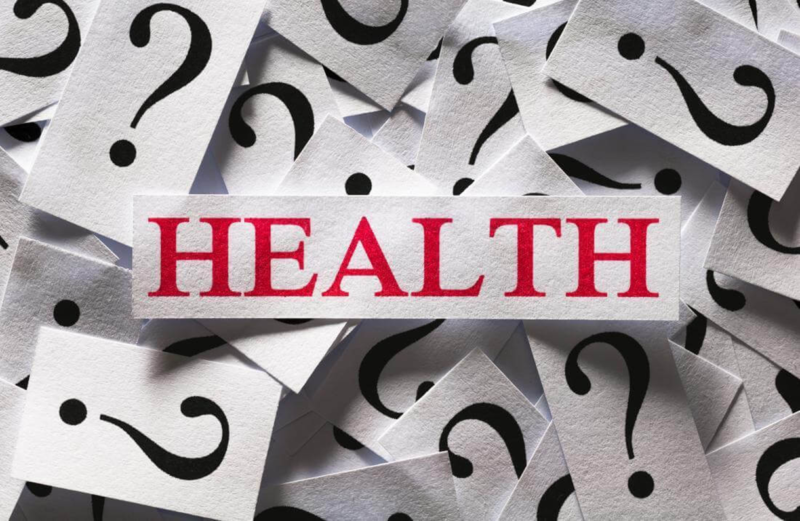
In today’s world, health information is everywhere, but not all of it is accurate. With myths about health circulating for years, it’s time to separate fact from fiction. Here, we debunk 10 common health myths and reveal the truth behind them.
1. Myth: Eating Fat Makes You Fat
Many people believe that eating fat leads to weight gain, but it’s not that simple. Healthy fats, like those found in avocados, nuts, and olive oil, are essential for a balanced diet.
- The Truth: Consuming healthy fats can actually help with weight management and provide necessary nutrients.
- Advice: Focus on unsaturated fats and avoid trans fats for a healthier diet.
Good fats are part of a balanced diet and can be beneficial for your health when consumed in moderation.
2. Myth: You Need 8 Glasses of Water a Day
The ‘8 glasses a day’ rule is often cited as the ideal amount of water, but everyone’s needs vary depending on factors like age, activity level, and climate.
- The Truth: Hydration needs vary, and thirst is usually a good indicator of when to drink.
- Advice: Drink water when you’re thirsty and adjust for activity levels, but don’t stress about reaching exactly 8 glasses daily.
Staying hydrated is essential, but there’s no universal rule for how much water each person needs.
3. Myth: Eggs Raise Your Cholesterol Levels
Eggs have long been labeled as unhealthy due to their cholesterol content, but recent studies suggest that moderate egg consumption doesn’t significantly impact blood cholesterol in most people.
- The Truth: For most people, dietary cholesterol has little impact on blood cholesterol.
- Advice: Enjoy eggs in moderation as part of a balanced diet.
Eggs are a nutritious food rich in protein and healthy fats, so you can include them in your diet without fear.
4. Myth: Carbohydrates Are Bad for You
Carbs have been unfairly demonized in recent years, leading many people to avoid them. However, carbohydrates are an essential part of a balanced diet, especially when they come from whole grains, fruits, and vegetables.
- The Truth: Carbohydrates provide energy and are necessary for a healthy diet.
- Advice: Focus on complex carbs like whole grains and avoid refined sugars for better health.
Carbs are not inherently bad; it’s all about choosing the right kinds for sustained energy.
5. Myth: Natural Sugars Are Healthier Than Added Sugars
Many assume that natural sugars found in fruits or honey are healthier than added sugars, but both types affect the body similarly. The difference lies in the nutrients that come with natural sugars.
- The Truth: Natural sugars in fruits come with fiber and vitamins, unlike added sugars.
- Advice: Limit both types of sugar and focus on whole fruits for natural sweetness.
While natural sugars can be part of a healthy diet, moderation is still key.
6. Myth: Multivitamins Are Necessary for Good Health
Many people believe they need a daily multivitamin to stay healthy, but most people can get the nutrients they need from a balanced diet.
- The Truth: If you eat a varied diet, you may not need a multivitamin.
- Advice: Consult with a healthcare provider before starting any supplement regimen.
A well-balanced diet often provides all the essential vitamins and minerals without the need for supplementation.
7. Myth: You Should Detox Regularly
Detox diets and cleanses are popular, but the body has its own built-in detox system—the liver, kidneys, and lungs all work to remove toxins naturally.
- The Truth: A healthy body doesn’t need detoxes or cleanses to remove toxins.
- Advice: Focus on a balanced diet, hydration, and regular exercise for natural detoxification.
Instead of detoxes, support your body’s natural processes by eating well and staying hydrated.
8. Myth: You Only Need Sunscreen on Sunny Days
UV rays can harm the skin even on cloudy or cold days, making daily sunscreen use important for skin health and preventing premature aging.
- The Truth: UV rays penetrate clouds, so sunscreen is necessary even on overcast days.
- Advice: Apply broad-spectrum sunscreen daily, regardless of the weather.
Daily sunscreen protects your skin from damage, even on days without sunshine.
9. Myth: Cracking Your Knuckles Causes Arthritis
Despite the common warning, research has found no evidence that knuckle-cracking causes arthritis. However, it may lead to other issues if done excessively.
- The Truth: Cracking knuckles does not cause arthritis, though it may weaken grip strength over time.
- Advice: Cracking is generally harmless, but avoid making it a habit if it causes discomfort.
Knuckle-cracking is unlikely to harm you, but moderation is still wise.
10. Myth: A Cold Environment Can Cause a Cold
Being in a cold environment doesn’t cause colds. Viruses cause colds, though cold weather can weaken the immune system, making you more susceptible.
- The Truth: You need to be exposed to a virus to catch a cold, not just cold weather.
- Advice: Wash your hands frequently and avoid close contact with sick individuals.
Cold weather itself isn’t the culprit; germs are.
Conclusion
Many health myths have persisted over time, but understanding the science behind them can help you make better health choices. From fat intake to cold prevention, knowing the facts enables you to build a healthier lifestyle based on evidence, not misconceptions.







